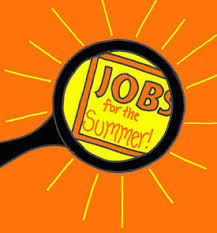Students often get a job in the summer. If it’s your first job it gives you a chance to learn about work and paying tax. The tax you pay supports your home town, your state and our nation. Here are some tips students should know about summer jobs and taxes:
- Withholding and Estimated Tax. If you are an employee, your employer withholds tax from your paychecks. If you are self-employed, you may have to pay estimated tax directly to the IRS on set dates during the year. This is how our pay-as-you-go tax system works.
- New Employees. When you get a new job, you will need to fill out a Form W-4, Employee’s Withholding Allowance Certificate. Employers use it to figure how much federal income tax to withhold from your pay. The IRS Withholding Calculator tool on IRS.gov can help you fill out the form.
- Self-Employment. Money you earn doing work for others is taxable. Some work you do may count as self-employment. These can be jobs like baby-sitting or lawn care. Keep good records of your income and expenses related to your work. You may be able to deduct (subtract) those costs from your income on your tax return. A deduction can cut taxes.
- Tip Income. All tip income is taxable. Keep a daily log to report them. You must report $20 or more in cash tips in any one month to your employer. And you must report all of your yearly tips on your tax return.
- Payroll Taxes. You may earn too little from your summer job to owe income tax. But your employer usually must withhold social security and Medicare taxes from your pay. If you’re self-employed, you may have to pay them yourself. They count for your coverage under the Social Security system.
- Newspaper Carriers. Special rules apply to a newspaper carrier or distributor. If you meet certain conditions, you are self-employed. If you do not meet those conditions, and are under age 18, you may be exempt from social security and Medicare taxes.
- ROTC Pay. If you’re in ROTC, active duty pay, such as pay you get for summer camp, is taxable. A subsistence allowance you get while in advanced training is not taxable.
If you have any questions about your summer job, feel free to contact our office.

